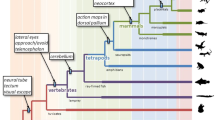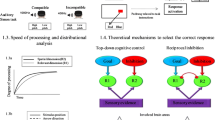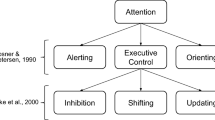Abstract
Rationale. Nitrous oxide (N2O) inhalation, at subanaesthetic concentrations, impairs choice reaction time (RT). However, the functional locus of this effect remains to be ascertained. In the present study, this issue was investigated by applying the additive factor logic to the RTs of rats performing a visuo-motor task.
Method. The task consisted of either a left-side or a right-side body displacement to a visual stimulus displayed in either the left or right hemispace. The experimental design involved the manipulation of two task factors (stimulus luminance and foreperiod duration) the effects of which are additive on RT. Inhaled N2O (from 0% to 60%) was varied as the third factor of the design.
Results. N2O prolonged RT in a dose-dependent manner and this effect was additive with that of stimulus luminance, whilst it interacted with that of foreperiod duration. Moreover, at low concentrations (10–20%), N2O abolished the effect of foreperiod, possibly through a disturbance of time estimation processes, whereas at higher concentrations (30–40%) N2O enhanced the effect of foreperiod, probably by slowing down motor processes. Movement time (MT) was decreased by N2O at 20–40%.
Conclusions. The present data provide evidence that N2O impairs information processing by altering at least the stage of motor adjustment. In addition, N2O spares the sensory processes implemented during the stimulus preprocessing stage. A subsidiary result is that at some concentrations, N2O displays opposite effects on reaction time and movement time. These results demonstrate that the additive factor method constitutes a powerful new tool for studying the pharmacology of information processing in animal models.
Similar content being viewed by others
Author information
Authors and Affiliations
Additional information
Electronic Publication
Rights and permissions
About this article
Cite this article
Courtière, A., Hardouin, J., Vidal, F. et al. An additive factor analysis of the effect of sub-anaesthetic doses of nitrous oxide on information processing: evidence for an impairment of the motor adjustment stage. Psychopharmacology 165, 321–328 (2003). https://doi.org/10.1007/s00213-002-1278-9
Received:
Accepted:
Issue Date:
DOI: https://doi.org/10.1007/s00213-002-1278-9




